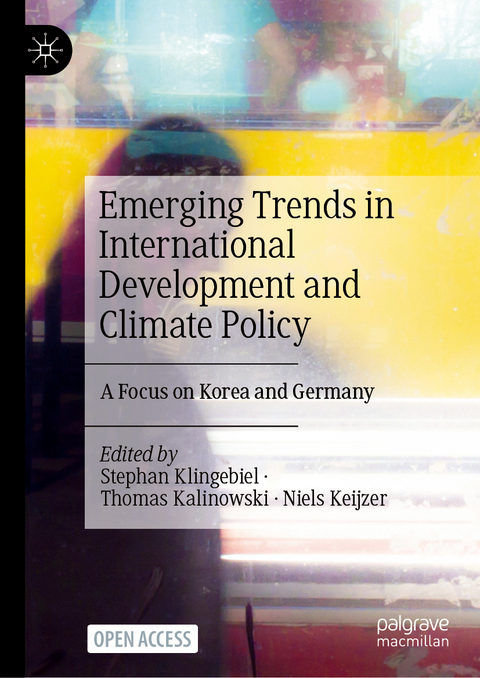
Emerging Trends in International Development and Climate Policy
Springer International Publishing (Verlag)
978-3-031-65670-5 (ISBN)
This open access book delves into the considerable alignment of global sustainable development priorities between Germany and the Republic of Korea (hereafter referred to as Korea), despite their geographical separation. Notably, both nations share a common commitment to development policy and international climate action, an alignment that holds immense potential for enhanced cooperation in today's evolving global landscape.
Germany's historical role as a founding member of the international development cooperation system juxtaposes with Korea's more recent entry into the Organisation for Economic Co-operation and Development (OECD) and its Development Assistance Committee (DAC) in 2010. Korea has transformed from a significant development assistance recipient to an active provider, a transition mirrored in its engagement in international climate finance.
Within this dynamic context, the book thoroughly examines key aspects such as the evolving development policy profiles of Germany and Korea, their roles in international organizations, and their shared commitment to international climate policies. It also explores avenues for deeper collaboration between these like-minded partners, all against the backdrop of an evolving geopolitical focus, including the new Indo-Pacific emphasis.
Stephan Klingebiel is Head of the Research Programme "Inter- and transnational cooperation" at the German Institute of Development and Sustainability (IDOS) and a Visiting Professor at Ewha Womans University, Seoul, and at the University of Turin.
Thomas Kalinowski is Professor at Ewha Womans University, Seoul, Korea.
Niels Keijzer is Senior Researcher and Project Lead based at the German Institute of Development and Sustainability (IDOS).
Chapter 1: Introduction: Germany and Korea as partners in international development and green transitions.- Chapter 2: Germany and Korea: Comparing systems, policies and cooperation pattern.- Chapter 3: The Political Economy of German and Korean Sustainability Transitions.- Chapter 4: Positions of Established and Emerging Powers towards Climate Finance: The cases of Germany and Korea.- Chapter 5: Realizing the Women, Peace and Security Agenda through Foreign Aid: A comparative analysis of Korea and Germany.- Chapter 6: The Impact of Geopolitics on the Field of Development in Korea and Germany.- Chapter 7: The Southernization of the EU's development policy? A critical review of the EU Global Gateway.- Chapter 8: Multilateralism and Climate Justice.- Chapter 9: A Comparative Analysis of the Climate Change Mitigation Efforts of Korea and Germany: Implemented technology and financial mechanism projects under the UNFCCC.- Chapter 10: The Evolution of Research and Partnership Activities in Support of Urban Transformation: The EU's research and innovation framework programme.- Chapter 11: Private Sector Engagement Policies in South Korea: Challenges and policy suggestions.
| Erscheinungsdatum | 03.09.2024 |
|---|---|
| Zusatzinfo | XV, 156 p. 3 illus., 2 illus. in color. |
| Verlagsort | Cham |
| Sprache | englisch |
| Maße | 148 x 210 mm |
| Themenwelt | Sozialwissenschaften ► Politik / Verwaltung ► Europäische / Internationale Politik |
| Sozialwissenschaften ► Politik / Verwaltung ► Staat / Verwaltung | |
| Sozialwissenschaften ► Politik / Verwaltung ► Vergleichende Politikwissenschaften | |
| Schlagworte | Climate finance • Development Policy • Germany • International Relations • Korea • open access |
| ISBN-10 | 3-031-65670-9 / 3031656709 |
| ISBN-13 | 978-3-031-65670-5 / 9783031656705 |
| Zustand | Neuware |
| Haben Sie eine Frage zum Produkt? |
aus dem Bereich


